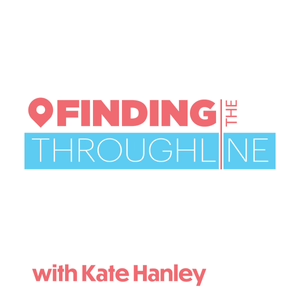
What's the Rush? Slow Down and be More Productive.
01/26/25 • 12 min
Do you feel you are rushing from one task to another while not getting anything important done? Well, this week, I’m going to share with you a few ways to change that.
You can subscribe to this podcast on:
Podbean | Apple Podcasts | Stitcher | Spotify | TUNEIN
Links:
Email Me | Twitter | Facebook | Website | Linkedin
Get Your Copy Of Your Time, Your Way: Time Well Managed, Life Well Lived
The Working With... Weekly Newsletter
Carl Pullein Coaching Programmes
The Working With... Podcast Previous episodes page
Script | 353
Hello, and welcome to episode 354 of the Your Time, Your Way Podcast. A podcast to answer all your questions about productivity, time management, self-development and goal planning. My name is Carl Pullein, and I am your host of this show.
What’s the rush? This is one of those powerful questions you can ask yourself when processing the things you have collected in your inboxes.
It’s easy today to feel that everything you are asked to do must be done immediately. While there is a category of tasks that require quick action, most of what comes across your desk (or pops up on your screen) does not fall into that category.
The trick, of course, is knowing which is which. This is where developing confidence in your judgement and abilities helps. But that can only come from establishing some “rules”. In a way, automating your decision-making.
I recently heard an interview with President J F Kennedy, in which he said as president, the kind of decisions you make are always high-level. Anything smaller will be dealt with at a lower level and rarely reach your desk.
That’s an example of government in action. The president or Prime Minister cannot decide everything. Lower-level, less urgent things can and should be handled at a department level.
That’s the same for you. Most of your decisions should be automated. What kind of emails are actionable, and what can be archived or deleted, for example.
So, without further ado, let me hand you over to the Mystery Podcast Voice for this week’s question.
This week’s question comes from Edward. Edward asks, Hi Carl, I recently read your newsletter in which you wrote about slowing down. Could you explain a little more how to slow down and still be productive?
Hi Richard, thank you for your question.
One of the disadvantages of technology and how it has advanced over the last twenty years is the speed at which tasks can now be done.
While technology has speeded up incredibly, our human brains have not. That causes us many issues.
The biggest issue is because everyone knows how quickly we can reply to an email, they expect almost instant replies which ignores the fact we might being doing something else.
For example, when I am driving or in a meeting or on a call, I cannot reply to an “urgent” email or message. I am doing something else.
In the days before email, there was a natural delay. I remember when I was working in a law firm, email was very new and lawyers didn’t trust it. So, we continued writing letters. This meant, if we received a letter in the morning, we had until 4 pm to reply—that was when the mail went to the post office.
If we missed the post, that was okay, we could blame the post office. And that was accepted.
Other lawyers knew this as did our clients and the clients of the other lawyers.
This also meant we had time to think about our response, talk to a colleague if necessary or escalate to our boss if the issue was complex.
Today, we often don’t feel we have that time. The truth is you do.
One thing I’ve learned is when someone sends you something they are secretl...
Do you feel you are rushing from one task to another while not getting anything important done? Well, this week, I’m going to share with you a few ways to change that.
You can subscribe to this podcast on:
Podbean | Apple Podcasts | Stitcher | Spotify | TUNEIN
Links:
Email Me | Twitter | Facebook | Website | Linkedin
Get Your Copy Of Your Time, Your Way: Time Well Managed, Life Well Lived
The Working With... Weekly Newsletter
Carl Pullein Coaching Programmes
The Working With... Podcast Previous episodes page
Script | 353
Hello, and welcome to episode 354 of the Your Time, Your Way Podcast. A podcast to answer all your questions about productivity, time management, self-development and goal planning. My name is Carl Pullein, and I am your host of this show.
What’s the rush? This is one of those powerful questions you can ask yourself when processing the things you have collected in your inboxes.
It’s easy today to feel that everything you are asked to do must be done immediately. While there is a category of tasks that require quick action, most of what comes across your desk (or pops up on your screen) does not fall into that category.
The trick, of course, is knowing which is which. This is where developing confidence in your judgement and abilities helps. But that can only come from establishing some “rules”. In a way, automating your decision-making.
I recently heard an interview with President J F Kennedy, in which he said as president, the kind of decisions you make are always high-level. Anything smaller will be dealt with at a lower level and rarely reach your desk.
That’s an example of government in action. The president or Prime Minister cannot decide everything. Lower-level, less urgent things can and should be handled at a department level.
That’s the same for you. Most of your decisions should be automated. What kind of emails are actionable, and what can be archived or deleted, for example.
So, without further ado, let me hand you over to the Mystery Podcast Voice for this week’s question.
This week’s question comes from Edward. Edward asks, Hi Carl, I recently read your newsletter in which you wrote about slowing down. Could you explain a little more how to slow down and still be productive?
Hi Richard, thank you for your question.
One of the disadvantages of technology and how it has advanced over the last twenty years is the speed at which tasks can now be done.
While technology has speeded up incredibly, our human brains have not. That causes us many issues.
The biggest issue is because everyone knows how quickly we can reply to an email, they expect almost instant replies which ignores the fact we might being doing something else.
For example, when I am driving or in a meeting or on a call, I cannot reply to an “urgent” email or message. I am doing something else.
In the days before email, there was a natural delay. I remember when I was working in a law firm, email was very new and lawyers didn’t trust it. So, we continued writing letters. This meant, if we received a letter in the morning, we had until 4 pm to reply—that was when the mail went to the post office.
If we missed the post, that was okay, we could blame the post office. And that was accepted.
Other lawyers knew this as did our clients and the clients of the other lawyers.
This also meant we had time to think about our response, talk to a colleague if necessary or escalate to our boss if the issue was complex.
Today, we often don’t feel we have that time. The truth is you do.
One thing I’ve learned is when someone sends you something they are secretl...
Previous Episode

MPP - Maximum Procratination Protection
This week, how to reduce procrastination and why you don’t want to completely remove it.
You can subscribe to this podcast on:
Podbean | Apple Podcasts | Stitcher | Spotify | TUNEIN
Links:
Email Me | Twitter | Facebook | Website | Linkedin
Get Your Copy Of Your Time, Your Way: Time Well Managed, Life Well Lived
The Working With... Weekly Newsletter
Carl Pullein Coaching Programmes
The Working With... Podcast Previous episodes page
Script | 353
Hello, and welcome to episode 353 of the Your Time, Your Way Podcast. A podcast to answer all your questions about productivity, time management, self-development and goal planning. My name is Carl Pullein, and I am your host of this show.
We recently asked what’s the biggest thing that ruins your productivity on my YouTube community page. 58% of participants said procrastination.
In a way, that doesn’t surprise me. When you see the statistics on how many people spend time planning their days and weeks, I am actually surprised that the number isn’t higher. I’ll explain shortly.
Now, procrastination has been around for a very long time. Leonardo Da Vinci only managed to finish a small number of paintings. Of the twenty paintings attributed to him, around five were finished.
Leonardo was a serial procrastinator. Yet, it was that procrastination that led to many of his inventions. If he had not procrastinated as much as he did, we would have many more of his paintings but very few of his notebooks full of drawings and diagrams.
The good news is, there are a few practices you can do that will reduce procrastination and enable you to be more internal about your days.
To get us started, let me hand you over to the Mystery Podcast Voice for this week’s question.
This week’s question comes from Carlos. Carlos asks, Hi Carl, what advice do you have for overcoming procrastination?
Hi Carlos, thank you for your question.
As I alluded to, procrastination and daily and weekly planning are linked. When you are clear about what needs to be accomplished you will procrastinate less.
The problem when you have no plan is you waste a lot of time trying to decide what needs to be done. And then, it’s likely you will pick the easiest thing to do in the hope it will get you started.
It’s true, you will get started, but you will be doing low value tasks leaving behind the higher value ones. The ones you don’t know what needs to be done or what the first action is because you don’t have a plan.
And that leaves you at the end of the day looking at a list of important, high value things you didn’t do.
One way to overcome this is to be very clear about what the next action is. In my next YouTube video, coming out on Thursday, I explain why “think about” tasks are not really tasks and will be the ones you will sacrifice the moment your day becomes busy.
The reason why these get put off is because it’s not clear what the real action is. For example, if I had a task like “think about what to buy mum for her birthday”, I would procrastinate. It’s too much effort and is not the real task.
The real task might be to talk to my brother and sister about what they re getting my mum. Or I could talk to my father and ask him what he thinks she would like.
Which task would you most likely do:
Think about what to buy mum for her birthday, or, call my brother and ask him what he’s getting mum for her birthday?
One is actionable the other is wishy washy. The wishy washy task is the one you will procrastinate on.
You will procrastinate because it’s not clear what needs to be done.
This is where planning comes in. When you have...
Next Episode

Does Journaling Help You Be More Productive?
Should you take up journaling, and if you do, will it help you with your time management and productivity? That’s what we’re exploring this week.
You can subscribe to this podcast on:
Podbean | Apple Podcasts | Stitcher | Spotify | TUNEIN
Links:
Email Me | Twitter | Facebook | Website | Linkedin
Get Your Copy Of Your Time, Your Way: Time Well Managed, Life Well Lived
The Working With... Weekly Newsletter
Carl Pullein Coaching Programmes
The Working With... Podcast Previous episodes page
Script | 355
Hello, and welcome to episode 355 of the Your Time, Your Way Podcast. A podcast to answer all your questions about productivity, time management, self-development and goal planning. My name is Carl Pullein, and I am your host of this show.
This year is the 10th anniversary since I took up consistent journaling. And it’s been one of the best things I’ve ever taken up.
Not only is it one of the most therapeutic things you can do, it’s also one of the best ways to organise your thoughts, work your way through problems and vent your anger towards those who really wind you up.
Over the years, I’ve also found that journaling has helped me to achieve my goals because each day I am writing about how I am doing and if I find myself making excusing, the act of writing out my excuses exposes them for what they really are—excuses.
So, this week, I’ve chosen a question related to journaling and I hope it will inspire you to invest in a quality notebook and pen and start doing it yourself. And if I can inspire just one of you to take it up and become a Samuel Pepys, I’ll be very happy.
So, to kick ups off, let me hand you over to the Mystery Podcast Voice for this week’s question.
This week’s question comes from Tom. Tom asks, hi Carl, I’ve heard you talk about your journaling habit numerous times. Do you think writing a journal has helped or hindered your productivity?
Hi Tom, thank you for your question.
To answer your question directly, I can say with certainty that journaling has contributed to my overall productivity.
To explain further, I write in my journal every morning, no matter where I am. And one of the things I always write down is my two objective tasks for the day. Those objectives are the two non-negotiable tasks for the day and by writing them down at the top of my journal entry, I have a way of ensuring I did them when I write my journal the next day,
But more powerfully, writing them down each morning focuses my mind on what needs to be done and how and when I will do them.
Those tasks are also in my task manager, but it’s the act of writing them out by hand that gives me the focus.
Writing a journal is much more than being an aid to productivity. It’s also a form of therapy.
Like most people, I feel frustrated, overwhelmed and stressed at times. Those feelings need an outlet. A negative way to do that is to get angry, shout, and scream. Sure, that blows off steam, but it also transfers your negative feelings to others—your colleagues and family. Not great.
Instead, if you have a way to write about these things, you start to find ways to solve whatever the underlying issues are. Writing slows down your thinking, and if you were to step back and analyse why you sometimes feel stressed, frustrated and overwhelmed, it is because you feel—incorrectly—everything has to be done right now.
That slowing down helps to bring back some perspective and you can decide when you will do something and what can be left until another day.
When it comes to achieving your goals, a journal is perhaps the best way to track progress. It can also help you establish new, pos...
If you like this episode you’ll love
Episode Comments
Generate a badge
Get a badge for your website that links back to this episode
<a href="https://goodpods.com/podcasts/your-time-your-way-180453/whats-the-rush-slow-down-and-be-more-productive-82917741"> <img src="https://storage.googleapis.com/goodpods-images-bucket/badges/generic-badge-1.svg" alt="listen to what's the rush? slow down and be more productive. on goodpods" style="width: 225px" /> </a>
Copy




